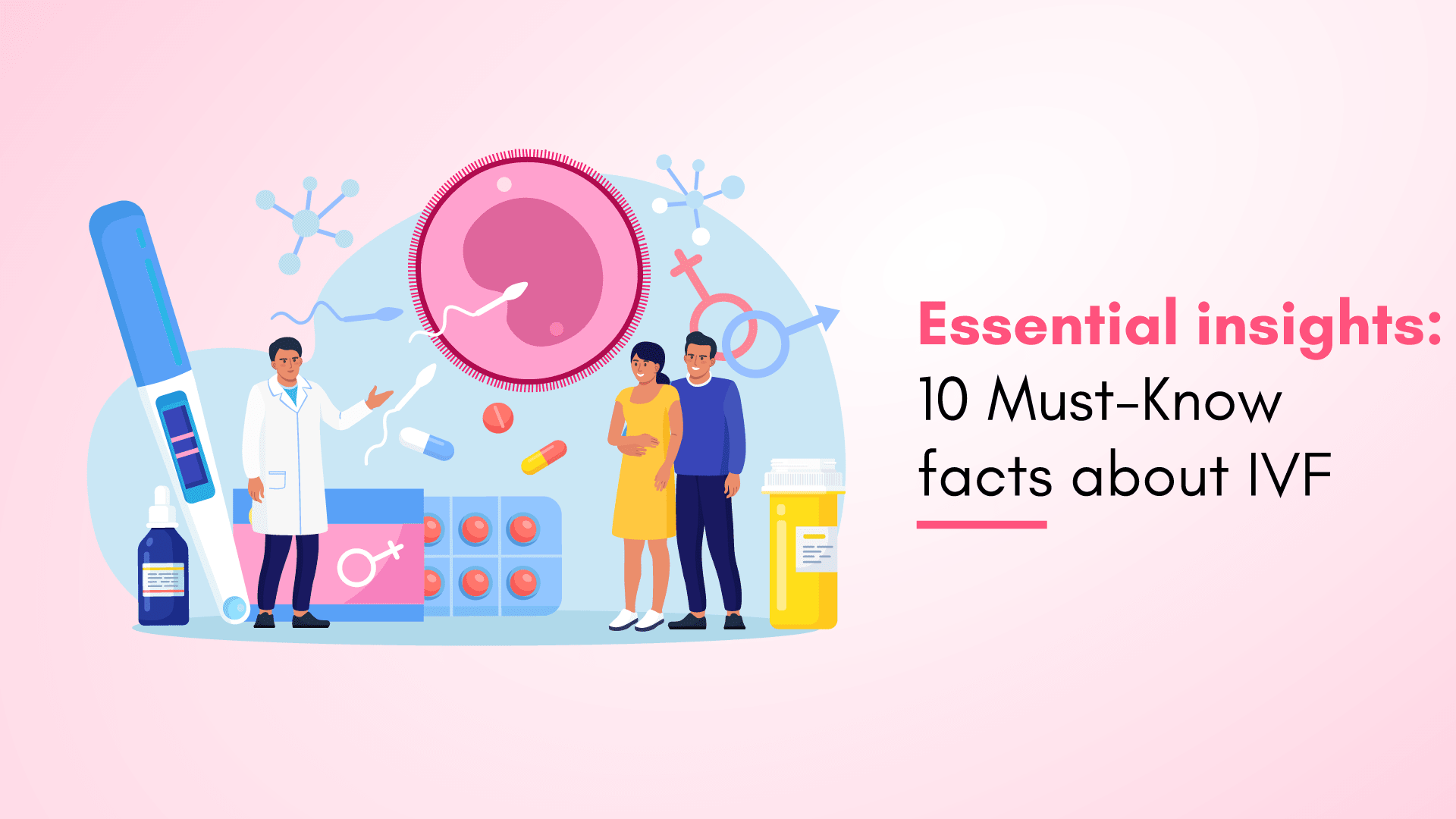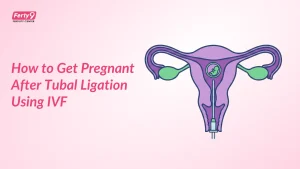Infertility can be a significant challenge for couples hoping to become parents. In-vitro fertilization (IVF) is a widely used treatment that helps many couples achieve parenthood. Therefore, understanding the details of IVF treatments is essential for those experiencing infertility.
Fact 1: What is IVF Treatment?
In-vitro fertilization (IVF) is a profound treatment for infertility conditions and is also used to prevent the transmission of genetic disorders. The IVF process involves collecting mature eggs from the ovaries and fertilizing them with sperm outside the human body. Later, the fertilized eggs are grown in the laboratory, and the embryos developed are placed in the woman’s uterus for the baby’s healthy development. IVF is a type of assisted reproductive technology (ART) that is a widely used fertility treatment that helps couples achieve parenthood.
Fact 2: Who Can Benefit from IVF?
Infertility does not differentiate between genders, and both women & men can experience it due to many reasons. Infertile individuals get the most benefits from IVF treatments. Statistics say that 20% of the time, infertility happens due to hormonal abnormalities in both genders.
Further, couples with medical conditions like fallopian tube damage or blockage, ovulation
disorders, endometriosis, uterine fibroids, previous sterilization surgery to prevent pregnancy, issues with sperm, unexplained infertility, genetic disorders, cancer, or other health conditions, get benefits from IVF fertility treatment.
Other individuals who benefit from the in-vitro fertilization process are single women, individuals harboring a hereditary genetic ailment, and those who wish to create savior siblings.
Fact 3: Understanding the IVF Process
Medical experts at top fertility centers like Ferty9 ensure that IVF treatments are followed with structured protocols and procedures. Here is a step-by-step overview of the IVF process:
- First, ovarian reserve testing is done to identify the number of eggs available. It helps medical experts identify the potential behavior of ovaries with fertility treatments and helps decide medicines, dosages, and stimulation protocols.
- Another initial step of the IVF procedure is semen analysis. The test checks the amount of sperm, their shape, and how they move.
- Couples are also advised to take blood tests to know if they have infectious medical conditions like HIV, which have the potential to pass on to the baby.
- Further, a demo process of placing an embryo into a woman’s uterus called mock
- embryo transfer is done to identify the depth of the uterus.
- Lastly, experts examine the inside lining of the uterus before embryo transfer to rule out and correct issues such as endometrial polyps or adhesions.
Fact 4: IVF Requires Frequent Monitoring
Monitoring patients during IVF helps medical professionals adjust medications, prevent side
effects, and tailor the treatment protocol. The major parts of monitoring IVF patients include:
1. Before induction therapy- IVF fertility treatment is to be followed considering factors like the patient’s endocrine profile, age, and egg number. It consists of medicines with exogenous gonadotropin therapy.
2. Monitoring ovarian response to induction therapy- Major dependable factors in IVF treatments are the follicular growth monitored by transvaginal ultrasound scans and blood tests for hormonal parameters.
3. Monitoring after completion of the induction therapy- The final maturation of the eggs is induced with hormones and followed by preparation for egg retrieval and
post-retrieval monitoring to prevent complications.
Fact 5: IVF Costs and Financial Considerations
The cost of the IVF process varies between fertility centers. The influencing factors that impact the overall costs are expert consultation fees, diagnostic tests, medications, ultrasound machines, use of advanced IVF techniques, laboratory fees for equipment, culture media, incubators, and other related factors. Additional factors that enhance the overall cost are genetic testing, embryo freezing, embryo biopsy, and sperm retrieval or selection procedures.
The IVF cycle treatment ranges from INR 1.5 lakh to INR 3 lakh. However, mini-IVF costs differ from the whole IVF treatment process. Mini IVF uses lower doses of fertilization medications, whereas full IVF treatments use higher doses of medicines to produce multiple eggs. However, it is recommended to consult with fertility center specialists to understand the pros and cons of both.
Fact 6: IVF Success Rates: Signs of Failed IVF in the 2WW
Studies conclude that there are no signs of failed IVF in 2WW (two-week wait), which means
women cannot know if the embryo is successfully implanted in the uterus. Only pregnancy tests can conclude if the IVF cycle is successful or failed.
Here are some of the symptoms to consider after those crucial two weeks: sore breasts, mood swings, cramping, vaginal discharge, increased need to pee, and spotting.
Fact 7: Risks and Complications Associated with IVF
IVF treatments may be associated with certain risks that women must be aware of. These
include bleeding, infection, and potential damage to blood vessels from the needle used to
harvest the eggs. Most procedures are quite safe in expert hands.
Further, Ovarian hyperstimulation syndrome, miscarriage, ectopic pregnancy, multiple
pregnancies, birth defects, premature delivery, and associated stress are other risks associated with IVF.
Fact 8: Alternative IVF Procedures
Some of the alternatives to the IVF procedure are:
- Intracytoplasmic sperm injection (ICSI)
- Egg /sperm/embryo freezing
- Non-medical options such as adoption
- In vitro maturation (IVM)
- Keyhole surgery
Effective consultation with medical experts is required when you select alternatives to IVF treatments.
Fact 9: Lifestyle Factors and IVF Success
The success of the IVF cycle depends on the lifestyle you choose to adopt. A healthy lifestyle plays a vital role in a healthy pregnancy. Here are a few things you can adopt:
- Healthy Diet
- Maintaining a Healthy Weight
- Regular Exercise
- Avoiding Alcohol, Smoking,
- Manage Your Stress
- Limiting Caffeine Intake
- Have Proper Sleep
- Adequate water and fluid intake
Fact 10: Emotional and Psychological Support During IVF
Seek support to cope with this phase of your life. Spend time with your family and friends, and communicate openly with your therapist and Ferty9’s expert medical consultants regarding your treatment and realistic success rate. Constantly educate yourself about the processes. Try relaxation techniques such as yoga or meditation. All these things will help you in your IVF journey and improve your treatment outcome.
Conclusion
Undergoing IVF treatment is challenging and requires a lot of expertise to deal with various factors to give the best pregnancy outcome. Therefore, if you choose IVF treatment, ensure to seek treatment from the best fertility centers, like Ferty9. Such centers specialize in turning complex medical treatments into personalized and compassionate care experiences.




























